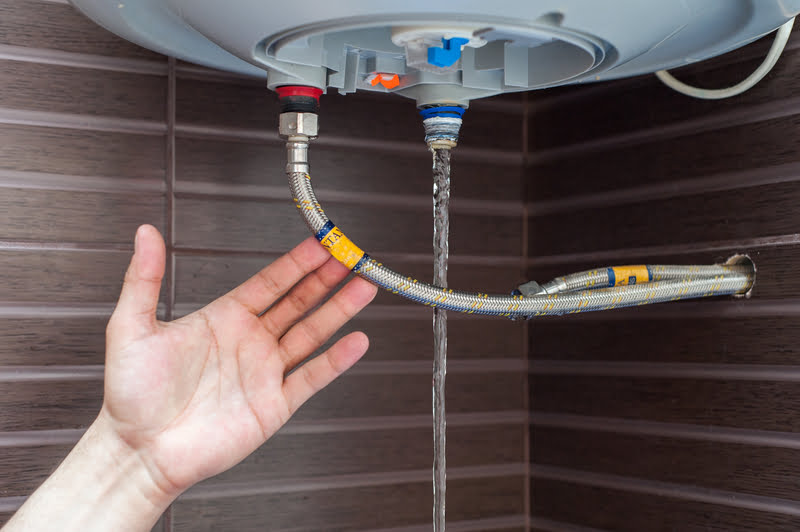Handling the Everyday Heater Urgent Problems
Handling the Everyday Heater Urgent Problems
Blog Article
What are your opinions regarding Common Hot Water Heater Problems?

A water heater is among the most essential fundamental devices that can be discovered in a house. With hot water heater, you do not need to go through the anxiety of heating water by hand each time there is a requirement to wash, wash, or the dishes. Nonetheless, there is always a possibility that your hot water heater would break down as with many mechanical devices.
It is necessary to note any type of little malfunction as well as tackle it promptly prior to things leave hand. The majority of times, your water heater begins to malfunction when there is an accumulation of sediments as a result of continual use. As a preventative measure, periodic flushing of your hot water heater is suggested to stop debris build-up as well as protect against practical failure.
Usual water heater emergency situations and also just how to manage them
Insufficient hot water
It might be that the water heater can not sustain the hot water demand for your house. You can update your water heating unit to one with a bigger ability.
Rising and fall water temperature.
Your water heating system can begin generating water of various temperatures normally ice hot or cold hot. There might be a demand to replace either the thermostat or the home heating system of your water heating system.
Dripping water heater storage tank.
In this situation, you ought to turn off your water heater, permit it to cool down, as well as carefully look for the source of the issue. At times, all you require to do is to tighten a couple of screws or pipe connections in instances of small leaks. If this does not function and also the leak lingers, you could need to utilize the solutions of a specialist for a proper substitute.
Discolored or smelly water
When this takes place, you need to recognize if the problem is from the tank or the water resource. You are certain that it is your water heater that is malfunctioning if there is no amusing odor when you run chilly water. The smelly water can be caused by rust or the build-up of microorganisms or debris in the hot water heater container. As soon as you notice this, you can attempt flushing out your container or changing the anode if the problem persists. The feature of the anode is to clean bacteria from your storage tank. Given that the anode pole substitute requires a comprehensive understanding of your water heating system, you will certainly need the help of a professional.
Conclusion
Some property owners neglect little caution and minor faults in their water heater unit. This only results in further damages and also a possible full malfunction of your device. You need to handle your water heater faults as soon as they come near prevent even more expenses and also unneeded emergency difficulties.
With water heaters, you do not need to go through the stress of heating water manually every time there is a need to take a bathroom, do the laundry, or the meals. It may be that the water heating system can't sustain the warm water demand for your home. Your water heater could begin producing water of different temperatures generally ice cool or hot warm. If there is no amusing odor when you run cold water, then you are particular that it is your water heater that is damaged. The smelly water can be created by corrosion or the accumulation of microorganisms or sediments in the water heating unit tank.
Common Water Heater Issues and What You Should Do
What Type of Water Heater Do You Have?
Before we begin it’s first important that you identify the type of water heater you have on your property. There are two main types of water heaters out there: conventional and high efficiency.
Both of these types of products typically use either gas or electricity to heat power. There are also solar water heaters that use a thermal collector on the roof or yard to heat the water.
While these models are not as common, they can cut heating costs in half. In this article, we will focus on conventional and high efficiency.
How Do My Electric and Gas Water Heater Work?
Though they look similar, electric and gas water heaters work very differently. It’s important to know their basic function because often problems can be specific to the heating source.
In the electric model, a thermostat on the side of the machine detects the temperature of the water in the tank. When the temperature needs to rise electricity flows to a heating element suspended in the water.
Gas models also use a thermostat device — typically with a mercury sensor at the tip and an additional sensor called a thermocouple. The thermocouple detects whether the pilot light is on and controls the flow of gas.
When the thermostat drops below the appropriate level gas is released which becomes ignited by the pilot light. The flame heats the bottom of the water tank which causes hot water to rise and cold water to drop.
This natural circulation continues until the water reaches the desired temperature. Then, the thermostat triggers the gas control valve to shut off the flow of gas.
What Are the Most Common Issues and How Do You Fix Them?
https://happyhiller.com/blog/common-water-heater-issues-and-what-you-should-do/

I'm just very fascinated with Is Your Water Heater Leaking? and I am hoping you enjoyed our blog entry. You should take a moment to distribute this page if you appreciated it. Thanks a lot for your time invested reading it.
Get instant help, call now! Report this page